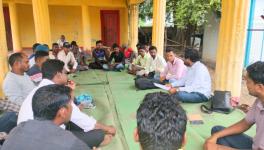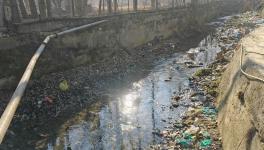Why is the Government Acquiring Land Under a Repealed Statute in Jammu & Kashmir?
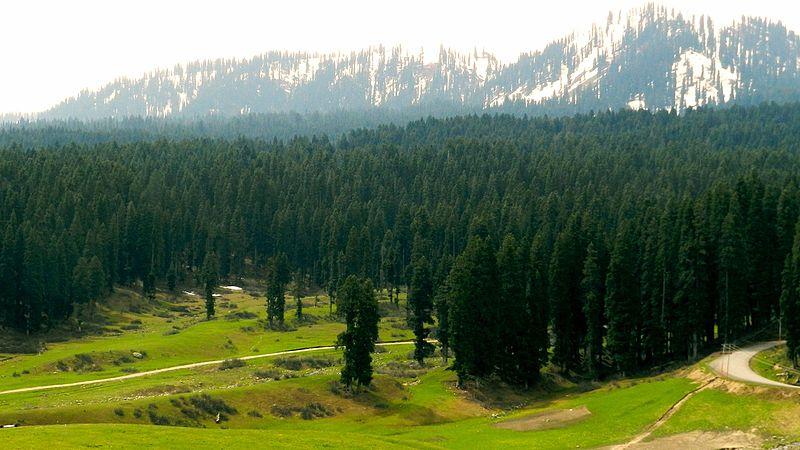
DR Jitendra Singh, a senior Bharatiya Janata Party (BJP) leader from Jammu, and the Union Minister of State (MoS) for the Prime Minister’s Office, during a semi virtual regional conference titled “Replication of Good Governance Practices”, said that more than 800 central laws have been extended to Jammu and Kashmir after the reading down of Article 370. The conference, which was held in July this year in Srinagar, was attended by 750 officers from almost one dozen states.
It is not possible to analyse these 800 central laws one by one, but the lax implementation of the Fair Compensation Act, one of the most progressive laws relating to land acquisition, suggests that the Government of India is hesitant to give the citizens of Jammu & Kashmir the benefits arising from progressive laws.
The Right to Fair Compensation and Transparency in Land Acquisition, Rehabilitation and Resettlement Act (Fair Compensation Act) was made operational in Jammu & Kashmir with effect from October 31, 2019, but the government continues to acquire land and property by invoking the obsolete State Land Acquisition Act, 1990 (1934 A.D.) (J&K Land Acquisition Act), which was repealed following the abrogation of Article 370.
The government is yet to hold orientation workshops for designated collectors or even publish the relevant changes in rules that would become applicable in the Union Territory. Ironically, not only have collectors been preparing awards by using the provisions of a repealed Act, the government, too, continues to issue notifications under the J&K Land Acquisition Act in many cases, depriving citizens of their right to fair compensation.
Land acquisition for PMGSY road
On October 18, 2019, the Government of Jammu & Kashmir issued a notification under Section 4 of the repealed J&K Land Acquisition Act, pertaining to a piece of land admeasuring 37 kanal 14 marla (approximately 5 acres) in Khadarian, a village located in the district of Rajouri.
This section 4 corresponds to Section 11 of the Fair Compensation Act, and mandates the publication of a preliminary notification outlining the details of any land being acquired for a public purpose. 18 months later, on April 23, 2021, a notification under Section 6 of the J&K Land Acquisition Act was issued, which stated that no objections had been received as against the section 4 notification. It went on to declare that, following the report of the collector, the land was being acquired for public use.
Also read: Life After Article 370: Orchards of Distress
Firstly, the notification issued under section 4 of the repealed J&K Land Acquisition Act was questionable in itself, as the same was issued almost immediately after Article 370 was abrogated. Starting October 31, 2019, the Fair Compensation Act would have been made operational in Jammu & Kashmir, bringing to question the government’s hurry to issue a notification under a repealed law that BJP party leaders and the union government of India considered outdated and anti-people.
Had the government harboured sincere intentions to help the poor landowners and farmers of remote villages in Rajouri, it could easily have waited to issue the notification after October 31, applying Section 11 of the Fair Compensation Act to facilitate the acquisition.
This would have benefited the people whose land was being brought under the Pradhan Mantri Gram Sadak Yojna (PMGSY), so as to build a road from Khadarian to Khah in the district of Rajouri. The Fair Compensation Act not only guarantees more compensation for acquired land, it also ensures rehabilitation and resettlement. The J&K Land Acquisition Act allows the State to acquire land after making a payment amounting to merely 15 percent of Jabirana (solatium), and to use the circle rate to make such calculation. In contrast, the Fair Compensation Act provides for 100 percent solatium, while also requiring that the State apply a rate that is double the price of the market value of the land.
A family in the Khah or Khadarian villages who, for instance, are paid INR 10 lakh as compensation under the J&K Land Acquisition Act, would have potentially been entitled to INR 40 lakh for the same property under the Fair Compensation Act.
It appears as though this “lapse” by the authorities was intentional, and meant to deny the people of Jammu & Kashmir fair compensation in return for their land. Pertinently, being a hilly state, J&K’s average land holding is much less than the national average. More than 80 percent of the farmers in Jammu & Kashmir are officially marginal. The average size of agricultural landholdings in J&K was estimated at 0.59 hectares by the Agriculture Census 2015-16, but unofficial sources say they are much smaller, at 0.45 hectares on average.
In the Kashmir Valley, the average size of landholdings is even smaller. During the 2010-2011 Agriculture Census, the average size of operational land holdings in India was 1.15 hectares. This figure was also lower, at 0.62 hectares, for Jammu & Kashmir.
Also read: Bakerwals Await Grazing Rights in Ladakh After Forest Rights Act Applied to J&K
Some districts in the Kashmir Valley had even lower landholding sizes than the Union Territory as a whole. In Anantnag, it is a mere 0.39 hectares, whereas in Kulgam, it is 0.39 hectares. Shopian has an average landholding size of 0.56 hectares, and Pulwama, 0.48 hectares. Srinagar, Budgam, and Baramulla, each have average landholding sizes of 0.31, 0.43, and 0.51 hectares respectively. In Ganderbal, it is 0.37 hectares, while Bandipora and Kupwara have landholding sizes averaging at 0.48 and 0.51 hectares respectively. In the Valley, where most farmers own less than an acre of land, this figure fell during the 2015-16 Agriculture Census.
In such a situation, the government should have paid a larger compensation to farmers affected by the acquisition. Unfortunately, they have been denied basic rights guaranteed under the fair compensation framework set up through the Fair Compensation Act.
Land acquisition for transmission line
In order to lay a transmission line from Zainakot-Alesteng to Mir Bazar in the Kashmir Valley, the Government of Jammu & Kashmir intends to acquire land at various locations in Srinagar and some other districts. The government had not issued a notification under Section 4 of the J&K Land Acquisition Act.
Instead, surprisingly, the Power Department had already “encroached” on the land at various locations over the last decade, and constructed towers and laid transmission lines.
When the land owners protested for over a year, the government decided to pay them some compensation. It is noteworthy that the post of the Collector for Land Acquisition for the Power Development Department has been lying vacant. This author had to take up the case with the Secretary of the General Administration Department (GAD) of the J&K government last year. The position was then assigned to the Assistant Commissioner (Nazool), Srinagar.
A few months ago, a formal order was issued to the officer, requiring him to issue a notification under Section 11 of the Fair Compensation Act. He, instead, called the aggrieved land owners from the district of Srinagar for a private negotiation at his office through an official communication (No: LA-PDD/MHPS/271-73) dated September 21, 2021. He also asked the Executive Engineer of the Transmission Line Maintenance Division-VII (TMLD-VII), Srinagar to be present at his office on September 28, 2021 along with the landowners from Chatterhama, Khimbrer, Harwan and Brein villages, whose land had already been acquired for the construction of transmission line towers in the outskirts of Srinagar.
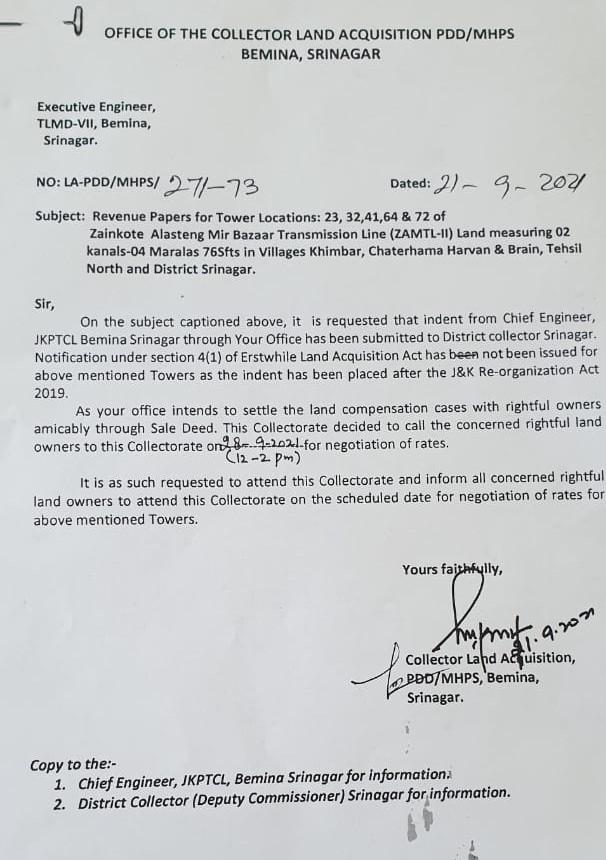
Letter from Collector, Land Acquisition dated Sept 21, 2021
At this meeting, the collector calculated the compensation due to the aggrieved landowners as per the repealed J&K Land Acquisition Act. The officer was unwilling to apply the provisions of the Fair Compensation Act. When the lawyers accompanying the aggrieved argued that they were entitled to 100 percent solatium and an assessment of compensation calculated at twice the market value of the land (as the area happens to be a rural habitation), the collector said that the government was yet to frame the rules under the new law, thereby preventing him from applying the provisions in this case.
Bypassing High Court order
Aggrieved persons from several villages of Budgam approached the Jammu & Kashmir High Court earlier this year, contending that their land was notified to be acquired under Section 4 of the Land Acquisition Act in the year 2017, and that these proceedings have “lapsed” due to the efflux of time as per section 11B of the erstwhile J&K Land Acquisition Act. The petitioners argued that neither was possession of the land taken from them, nor were they paid any compensation as a result of an award or under Section 17 of the J&K Land Acquisition Act.
A division bench of the High Court of Jammu & Kashmir, in June this year, issued notice in the petition, and in the interim, ordered the maintenance of ‘status quo’ with regard to the possession of the land from being acquired for the construction of a ring road in central Kashmir’s Budgam district.
Ghulam Ahmad Budoo, his brother, and his two nephews from the village of Choon in the Budgam district were among the petitioners in this case. The family has not been paid any compensation even four years after the issuance of a notification under Section 6. In fact, their awards were prepared in July 2019, but the money was not deposited into their accounts.
Also read: Farmers relieved as J&K High Court halts forcible land acquisition in parts of state
Land owners from the Choon village are in possession of their land with apple orchards on it.
On October 1, 2021, a team led by officers from the National Highway Authority of India (NHAI), the District Administration of Budgam, and the Police, forcibly tried to take possession of the land belonging to the Budoo family.
A JCB machine, which managed to excavate some soil, caused damage to the land and the apple trees with fully ripened fruit on them.
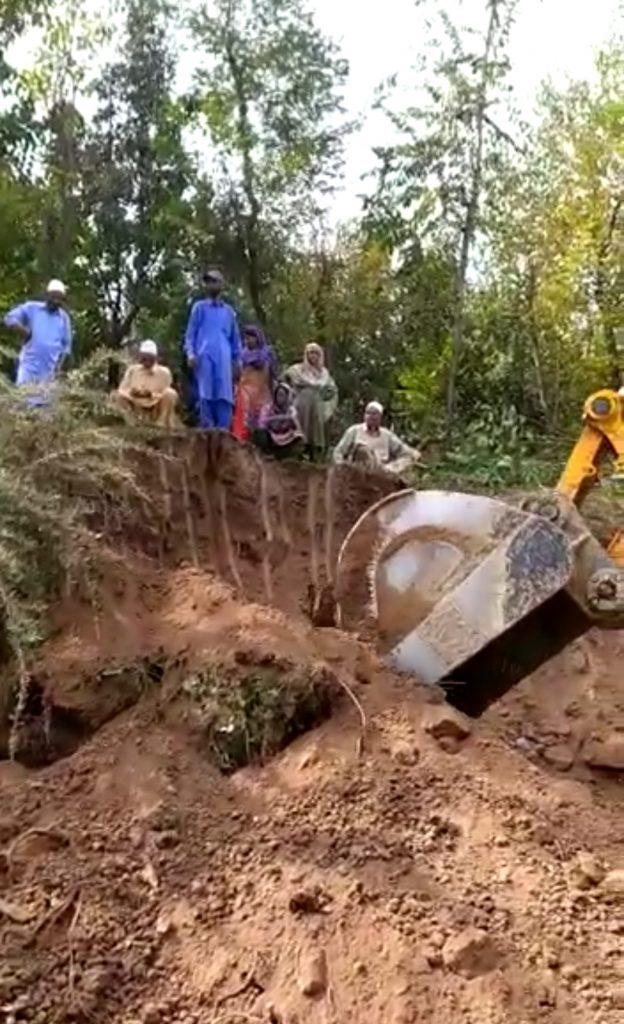
JCB machine excavating soil from Budoos’ land.
G.A. Budoo’s son, Waseem Ahmad Budoo, along with another land owner, Umar, were taken into custody while resisting the move. They were kept in police custody at the Budgam police station for some hours. The team led by the NHAI officers told the land owners that their compensation money had been deposited at the local district court.
Legal expert and former Administrative Officer of the state judiciary Syed Nasarullah says that the government is not entitled to take possession of the land using force as the awards had not been made within the stipulated time frame. Even if it was prepared within prescribed timeframes, as in the case of Choon village, the money had not been deposited into the accounts of the affected villagers in July 2019, he added.
“In addition to it there is a stay on road construction by the High Court division bench in the case of G.A. Paul vs. UT of J&K (the order which is referred to earlier), and villagers of Choon are petitioners in that case as well,” he further states.
Waseem Ahmad Budoo tells The Leaflet, “If we have obtained a status quo order from the High Court in June this year and no payment was made to us for the last four years since the notice was issued under section 6 of the erstwhile Land Acquisition Act of J&K in August 2017, how can the government authorities forcibly acquire our land? When I showed them the High Court order, they said they don’t care for it. These are not public servants but goons.”
He adds, “The Government has now deposited our compensation money in the local court and the higher judiciary has stayed the acquisition process. We are being offered compensation which is 50 percent less than the market value of the land. Only 15 percent solatium is paid instead of 100 percent, as guaranteed under the central act. The Government of India has befooled us by saying that after the revocation of Article 370, we will benefit. We are being robbed of our land and properties, and the benefits of progressive central laws are not given to us. We can’t even buy a half-acre of land now from the compensation money. What kind of justice is this?”
Not issuing fresh notification
On May 18, 2020, an official communication (No: DCB/LAS/20/300-10) was sent by the Deputy Commissioner, Budgam, to the Divisional Commissioner, Kashmir. The letter contained a comprehensive village-wise status report about the acquisition of land for the construction of the Srinagar Ring Road.
The Deputy Commissioner, Budgam clearly discloses in his communication that in several villages, no approval of the award has been received from the competent authority.
He also admits that the land acquisition proceedings for these villages have lapsed.
Also read: India’s dilution of progressive land and forest rights regime threatens to hijack democracy
The Deputy Commissioner, Budgam then sought instructions from the Divisional Commissioner, Kashmir, to initiate fresh proceedings under the Central Land Acquisition Act in the following terms:
“Guide if the land acquisition matters of villages detailed at (a) of the communication are to be initiated afresh as per the Right to Fair Compensation and Transparency in Land Acquisition Rehabilitation and Resettlement Act 2013.”
The government did not act on this communication, and prepared the awards in spite of the proceedings lapsing. As per Section 11B of the J&K Land Acquisition Act, the final awards and payments to affected people should be made within two years from the declaration made under Section 6 of the Act. If this is not done, the government has to issue fresh notifications, as the entire proceedings for the land acquisition lapse.
In most of the villages in Budgam, the declaration under Section 6 was issued in August 2017, and by July 2019, the government should have made the payments to the affected landowners or farmers. More than 30 percent of the farmers have still not been paid any compensation even though four years have passed.
Even the Jammu & Kashmir High Court, in its order dated November 9, 2020 in Abdul Salam Bhat vs. UT of J&K, said that fresh notice be issued for land acquisition in Wathoora if the government needs the land for the construction of the Semi Ring Road, but the interim order had no takers.
Also read: Digital Dreams Come to Naught for RTI Act In Kashmir
Prime Minister Narendra Modi, Union Home Minister Amit Shah, and other BJP leaders have claimed many times said that the extension of central laws to Jammu & Kashmir would confer upon its people benefits under the flagship programmes extended to the rest of the country.
What is the purpose of extending 800 central laws to J&K when people don’t benefit from them? More than two years after the abrogation of Article 370, the people of Kashmir are yet to benefit from laws relating to fair compensation, right to education, right to information, forest rights, and many others. Collectors appointed under the Fair Compensation Act are scared to enforce this law as they fear it might annoy the government. The government has hardly held any orientation programmes on these laws, which clearly indicates its lack of sincerity in implementing progressive central laws in Jammu & Kashmir.
(Raja Muzaffar Bhat is a Srinagar-based activist, columnist, and independent researcher. He is an Acumen India Fellow. The views expressed are personal.)
Originally Published in The Leaflet
Get the latest reports & analysis with people's perspective on Protests, movements & deep analytical videos, discussions of the current affairs in your Telegram app. Subscribe to NewsClick's Telegram channel & get Real-Time updates on stories, as they get published on our website.














